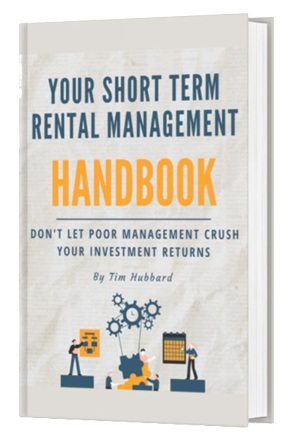Partnering with the government might sound like a strange concept, but when it comes to rental property tax deductions, it’s the secret sauce many landlords swear by. We’ll unravel the mysteries of tax breaks with insights from Tom Wheelwright, Robert Kiyosaki’s trusted accountant.
Understanding Tax Incentives
The big tax benefit for real estate is depreciation. You get to take a deduction for a portion of the property, whether it wears out or not.
Tom Wheelwright
Tax incentives are strategic tools designed to stimulate economic growth and encourage specific behaviors. They’re the government’s way of nudging you in the right direction.
But what does that mean for the average Joe?
At its core, depreciation allows property owners to deduct a portion of their property’s value over time, even if the property doesn’t physically “wear out.” It’s like the government’s way of acknowledging that properties, like all assets, have a lifecycle. Over time, they might lose value due to wear and tear, market fluctuations, or other external factors.
But here’s where it gets juicy.
These deductions aren’t just limited to the physical property. They can extend to improvements, like that swanky new kitchen or the solar panels you installed last summer. The idea is to encourage property owners to invest, improve, and thereby contribute to the economy.
It’s a win-win. You get tax breaks, and the economy gets a boost from your investments.
Active vs Silent Partnership
Choosing how you partner with the government can make all the difference. Do you want to be a silent partner, or an active one, leveraging tax breaks on investment properties?
As Tom puts it
The quickest way to increase your return is to follow the tax law and take the tax benefits of depreciation, particularly the Leverage Depreciation.
Tom Wheelwright
An active partner is deeply involved, understanding every tax nuance, and maximizing deductions. They’re the ones who, with the right knowledge, can turn a 20% return on investment into a whopping 40%, as Tom suggests.
On the flip side, silent partners might not be as involved in day-to-day operations or decisions. They invest, they trust their active partners or managers to handle the intricacies, and they enjoy the returns.
But here’s the catch: the depth of tax benefits might not be as profound for silent partners. It’s the difference between being in the driver’s seat and being a passenger.
Both have their perks, it just depends on what kind of journey you’re looking for.
The Government’s Role in Incentivizing Key Areas

The government’s incentives are methodically planned.
Governments, regardless of where you are in the world, have a vested interest in ensuring a thriving, robust economy. Tax incentives are one of their most potent tools in this arsenal. But it’s not just about boosting numbers; it’s about strategic growth in key areas.
Jobs creation
By offering tax breaks, governments encourage businesses to expand, hire more, and reduce unemployment.
It’s a ripple effect.
More jobs mean more spending, which in turn stimulates the economy further.
Technology development
In our rapidly evolving world, innovation is the name of the game. Governments, recognizing this, offer incentives to businesses that push the envelope, develop new technologies, and drive the nation forward into the digital age.
Housing provision
A growing population needs places to live. By providing tax incentives for rental properties, governments ensure more housing options become available, stabilizing property markets and ensuring affordable living options.
Energy production
With the global push towards sustainable energy, governments are incentivizing green energy production. Whether it’s solar farms, wind turbines, or other renewable sources, these tax breaks ensure a cleaner, greener future.
Food production
A nation needs to eat. By offering incentives in the agricultural sector, governments ensure food security, stable prices, and a thriving agri-business sector.
In essence, through these incentives, governments are shaping the future, directing growth where it’s needed most, and ensuring a balanced, prosperous nation for all.
Business vs. Employee Tax Incentives
The world of tax incentives is vast, but there’s a clear distinction between what’s available for businesses and what’s on the table for employees.
If you do it right, you'll end up putting in 10% of the money - the government will put in 10% of the money, the bank will put in 80% of the money.
Tom Wheelwright
Businesses, especially those in the rental property sector, drive economic growth, hence the broader spectrum of deductions.
But why this disparity?
Businesses, especially those in sectors like real estate, have the potential to drive significant economic growth. They create jobs, stimulate local economies, and contribute to infrastructural development.
Recognizing this, governments often provide a broader spectrum of deductions and incentives to businesses to encourage such growth.
On the other hand, employees, while essential to the economy, have a different set of tax incentives. These are often centered around personal growth, such as education, health, and retirement savings.
The idea is to ensure a stable, prosperous life for every citizen, promoting individual well-being and financial security.
Global Perspective on Tax Incentives
Tax incentives aren’t just a local phenomenon, they’re a global strategy employed by nations to foster growth in targeted sectors. Tom often alludes to the universality of these incentives, emphasizing their importance in a globalized economy.
From the bustling tech hubs in Singapore offering incentives to drive technological innovation to the picturesque landscapes of France, where green energy is a focal point, countries worldwide recognize the power of tax incentives.
But why this global emphasis?
In an interconnected world, nations are in a constant race to attract the best talent, the most innovative companies, and the biggest investors. Tax incentives are a tool in this competitive arsenal. They lure businesses, promote research and development, and ensure that countries remain at the forefront of global trends.
These incentives also reflect a nation’s priorities. While one country might prioritize green energy, another might focus on manufacturing or digital innovation. It’s a clear indication of where a nation sees its future and the path it’s charting towards that vision.
Leveraging Tax Incentives for Wealth Creation

Wealth creation is not just about making money, but also about smartly investing and maximizing returns. And what better way to maximize than to leverage the power of tax incentives? As Tom Wheelwright points out, understanding and harnessing these incentives can be a game-changer for landlords and investors.
Imagine getting a discount every time you invest. That’s essentially what tax incentives offer to investors. Every investment, especially in sectors like real estate, comes with potential tax breaks. These breaks, when utilized correctly, can significantly boost the return on investment (ROI).
It’s about strategically planning investments around them. It’s about knowing when to invest, where to invest, and how to structure these investments to reap the maximum benefits. It’s a dance between understanding tax laws and recognizing investment opportunities.
Tax incentives are not exclusive to the rich
There’s a common misconception that tax incentives are a luxury only the wealthy can afford to exploit. However, Tom Wheelwright is quick to debunk this myth.
If you had a 20% return on investment, which is not that hard in short term rental with a mortgage, right? You go in and you have 20% - all of a sudden now it’s 40% because the government put in half that money.
Tom Wheelwright
So, even small-scale landlords can make the most of the available deductions.
The beauty of these incentives lies in their ability to level the playing field. They offer everyone, regardless of their financial stature, an opportunity to maximize their investments. Whether you’re a novice landlord with a single property or an investor with a sprawling portfolio, the tax code has provisions that can benefit you.
It’s all about understanding these provisions, being proactive, and ensuring you’re not leaving money on the table.
The importance of choosing the right advisor
Navigating the intricate maze of tax incentives can be daunting. While the rewards are lucrative, the path is riddled with complexities. This is where the role of a trusted advisor becomes paramount. Tom cannot stress this enough.
He advises
Sit down with a good CPA who understands short-term rentals. I’ll tell you short term rentals is not something that very many people understand.
Tom Wheelwright
Choosing the right advisor is akin to selecting a co-pilot for a challenging journey. This individual or firm will not only guide you through the complexities of tax laws but also help you strategize, ensuring you’re making the most of every available incentive.
They’ll be your sounding board, your guide, and your advocate, ensuring you’re not just compliant but also optimized for maximum returns.
But how do you choose the right advisor?
It’s about more than just credentials. It’s about finding someone who understands your specific niche, someone who stays updated with the ever-evolving tax landscape, and someone who can tailor strategies to your unique situation.
In the world of rental property tax deductions, having the right advisor by your side can make all the difference between merely surviving and truly thriving.
Check out my CPA Amanda Han's webinar on short-term rental tax strategies
Designed to empower property owners and hosts with the knowledge they need to optimize their financial outcomes. You’ll learn from tax experts who specialize in the short-term rental industry.
Top Tax Deductions for Landlords
- Mortgage interest: A significant deduction available for the interest paid on a mortgage for a rental property.
- Depreciation: As Tom explains, “If I had a hundred-thousand-dollar house property this year, my depreciation on that could be as much as 25 to 30 thousand dollars.“
- Repairs: Any repair that keeps your property in good condition can be deducted.
- Local travel: Driving to your rental property for inspections or repairs? Deduct those travel expenses.
- Insurance: Any insurance you pay for your rental property can be deducted.









